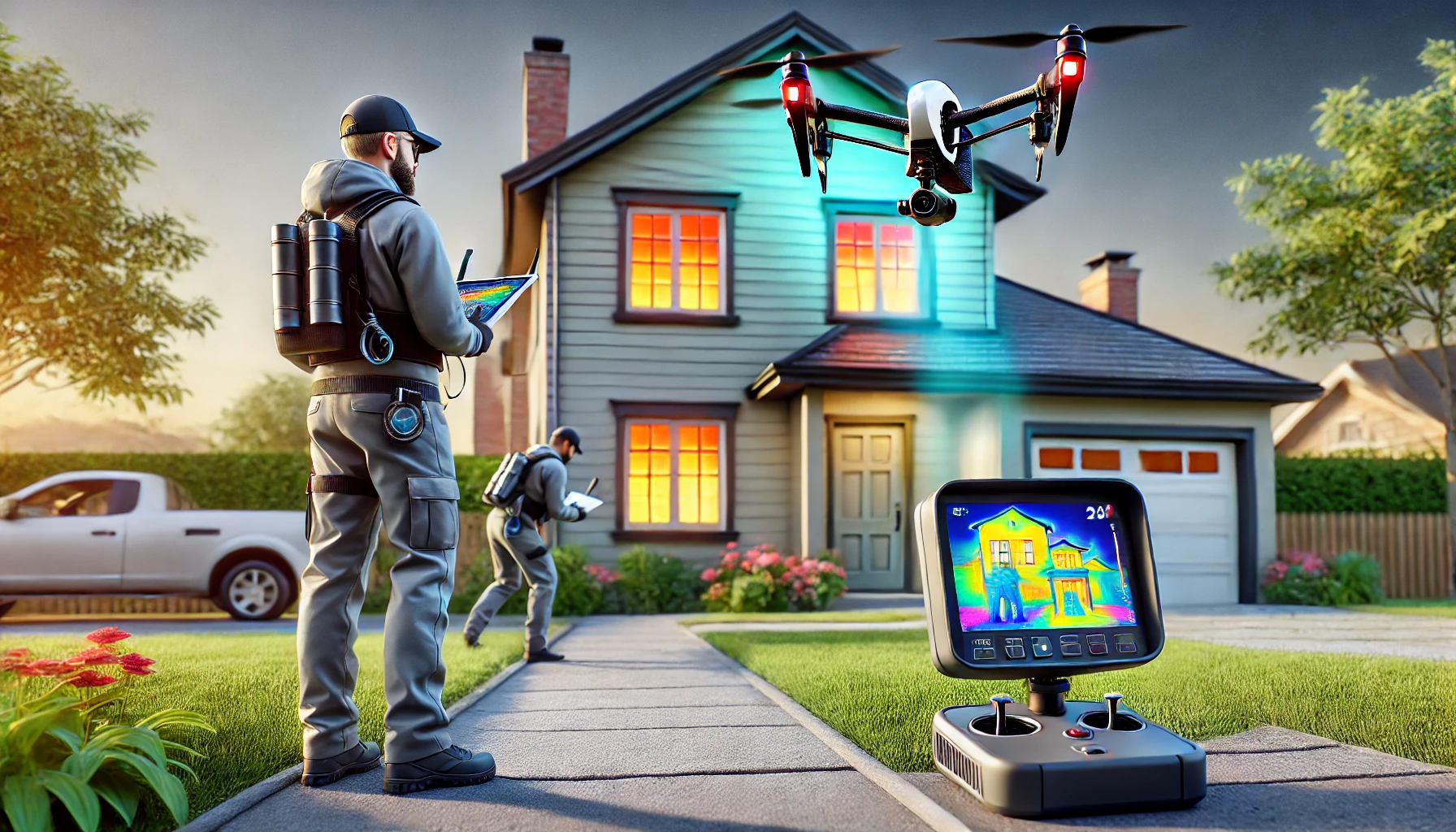When buying or selling property, a property inspection is one of the most crucial steps in the process. Whether you’re a homeowner, real estate agent, or investor, understanding the condition of a property is key to making informed decisions. Traditionally, property inspections were done using basic tools and heavily relied on the inspector’s trained eye. However, with the rise of modern technology, the inspection process has transformed. High-Tech Inspections are now offering innovative solutions that are faster, more accurate, and provide a deeper look into a property’s condition.
In this article, we’ll explain what high-tech inspections involve, the benefits for buyers and sellers, and how this technology is shaping the future of property evaluations.
1. What Are High-Tech Property Inspections?
High-tech property inspections use the latest advancements in technology to thoroughly assess the condition of a residential or commercial property. Unlike traditional inspections that mainly rely on visual checks and basic tools like moisture meters, high-tech inspections employ cutting-edge equipment like drones, thermal imaging cameras, moisture detectors, and even artificial intelligence (AI) to deliver a comprehensive evaluation.
These technologies help inspectors uncover problems that may not be visible to the naked eye. With the aid of high-tech tools, inspectors can spot hidden issues such as water leaks, structural damage, roofing defects, and electrical problems that could go undetected in a standard inspection. This more advanced approach gives buyers and sellers a clear, detailed understanding of a property’s true condition.
2. The Benefits of High-Tech Inspections
High-tech property inspections offer numerous benefits to both buyers and sellers. By using technology, the process becomes more reliable, efficient, and safer. Here’s how:
A. Enhanced Accuracy
One of the major advantages of high-tech inspections is improved accuracy. Tools like thermal imaging cameras help inspectors identify insulation gaps, moisture buildup, and electrical issues that traditional methods might miss. This technology ensures that every part of the property is assessed thoroughly, reducing the likelihood of hidden problems going unnoticed.
B. Early Issue Detection
Many property issues, such as water damage, mold, or structural problems, can develop gradually and worsen if not addressed early. High-tech inspections allow inspectors to spot these problems early on, saving homeowners from costly repairs down the line. For instance, thermal imaging can detect hidden water leaks behind walls long before they become visible.
C. Time-Saving Inspections
Traditional inspections can take hours, particularly for larger properties. High-tech tools like drones significantly cut down inspection time by quickly surveying roofs, chimneys, and other hard-to-reach areas. The use of technology speeds up the process while maintaining thoroughness, helping buyers and sellers move through transactions more swiftly.
D. Detailed Reporting
With high-tech inspections, reports are often more comprehensive. Using AI software, inspectors can generate detailed reports that include high-quality images, videos, thermal scans, and in-depth analyses of the property’s condition. These reports are easier for both buyers and sellers to understand, providing a clear overview of any issues and recommended repairs.
E. Improved Safety
Drones and remote inspection tools allow inspectors to safely assess areas that might otherwise be risky to access, such as steep roofs or attics. This minimizes the need for inspectors to physically enter hazardous spaces while still delivering precise information about the property’s condition.
3. Key Technologies Used in High-Tech Inspections
High-tech inspections utilize a range of advanced tools to ensure thorough and accurate evaluations. Here’s a breakdown of some of the key technologies used:
A. Drones
Drones equipped with high-resolution cameras can easily inspect roofs, gutters, and other hard-to-reach areas. This technology is particularly useful for properties with complex roof designs or areas that are unsafe for manual inspection. Drones provide clear, detailed visuals that help identify any roofing or structural issues.
B. Thermal Imaging Cameras
Thermal imaging cameras detect heat differences, making them ideal for spotting insulation issues, moisture accumulation, or overheating electrical systems. These cameras reveal hidden problems, such as leaks or faulty wiring, that aren’t visible during a standard inspection.
C. Moisture Meters
Moisture meters are critical for detecting excess water or humidity levels inside walls, floors, and ceilings. By pinpointing areas where moisture is present, inspectors can help homeowners avoid issues like mold growth, which can lead to significant damage if left unchecked.
D. Artificial Intelligence (AI) Software
AI-powered software is increasingly being used to analyze data from inspections and generate detailed reports. AI can process images, sensor readings, and other data to provide highly accurate assessments. It can even predict potential future issues based on current findings, helping homeowners stay ahead of maintenance needs.
4. How High-Tech Inspections Benefit Buyers and Sellers
High-tech inspections offer substantial advantages for both buyers and sellers, leading to more informed real estate decisions.
For Buyers:
Buyers can gain confidence knowing they have a complete understanding of the property’s condition. By using advanced technology, hidden issues like leaks, faulty wiring, or structural problems can be detected before purchase. This information can help buyers negotiate better terms or avoid purchasing a property that may require costly repairs in the future.
For Sellers:
Sellers can use high-tech inspections to identify and address any issues before listing the property. This can lead to quicker sales, as a clean inspection report provides reassurance to potential buyers. Additionally, having a high-tech inspection report available can differentiate a property in a competitive market, giving it an edge over others.
5. The Future of Property Inspections
The property inspection industry is evolving as new technologies continue to emerge. As AI, machine learning, and smart home technologies integrate further into the inspection process, property evaluations are set to become even more precise and proactive. Future inspections may offer predictive maintenance insights, helping homeowners address potential issues before they develop.
Final Thoughts
High-tech inspections are revolutionizing the way properties are evaluated. By utilizing modern technology, these inspections offer greater accuracy, faster turnaround times, and enhanced safety. Whether you’re buying, selling, or maintaining a property, a high-tech inspection provides valuable insights into the health of the home, helping you make informed decisions with confidence.

